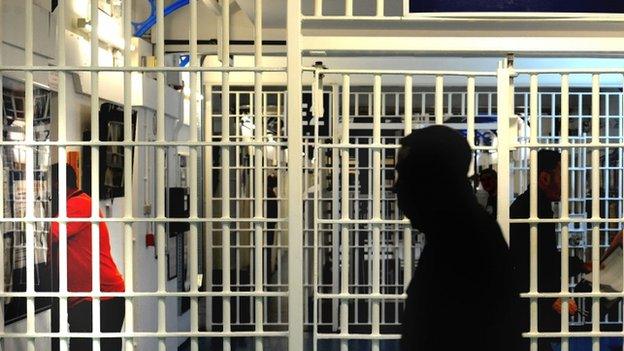Prison violence crackdown promised by government
- Published
CCTV captured an attack on a prison officer at Feltham Young Offenders' Institute
Prisoners who carry out assaults will face harsher measures in future, the Ministry of Justice has announced.
Guidelines will be set out aimed at securing more convictions for violent offences in prisons and young offenders institutions in England and Wales.
Priority will be given to prosecuting those who assault staff.
Criminal justice charity the Howard League said the government should focus on addressing staff shortages in order to reduce violence behind bars.
Government figures, external show assaults on staff rose by 12% in the year up to June 2014 - from 3,065 incidents to 3,427.
Advice set out by the Prison Service, the Crown Prosecution Service (CPS) and the Association of Chief Police Officers is intended to offer "clear guidance" on those crimes that must be considered for prosecution.
Under the new scheme:
Prisons should provide statements for use by the CPS in court, explaining the impact of the crime on the jail in question
There should be greater use of victims' personal statements to allow the victim to summarise the impact the crime has had on them
Prosecutors should remind the courts of existing guidelines recommending serving prisoners receive a sentence consecutive to an existing offence, particularly for violent crimes.
Prisons Minister Andrew Selous said the measures, expected to come into force by April 2015, "will ensure that those that attack staff are prosecuted and fully brought to justice".
"We have always had a complex and challenging prison population but are taking appropriate steps to ensure that we carefully manage the increased levels of violence," he added.
Prisons Minister Andrew Selous: Inmates who assault staff will "spend longer behind bars"
Attorney General Jeremy Wright said: "This protocol will make it clear that prosecution should usually follow when prisoners assault hard-working prison staff.
"Prison officers deserve the greatest clarity and the best protection we can give them."
The Prison Officers Association has blamed staff cuts for increasing violence and says 90 wardens a month are leaving their jobs because they fear for their safety.
'Waste of time'
Andrew Neilson, campaigns director for the Howard League for Penal Reform, said: "We welcome any move to combat the problem of increased violence in prison, but there are already measures in place to deal with these offenders.
"Prisons have faced steep budget cuts resulting in staff shortages and until we address that we will not be able to fully tackle violence behind bars."
The charity's chief executive, Frances Crook, said prisons were "grossly overcrowded", with adult men living in shared cells "the size of a toilet".
"They don't get out of the cell, and these are young men who have lots of energy, and you're just asking them to lie idle on a bunk for months on end," she said.
"And as one prison officer said to me, if you treat people like that they come out fighting."

Attack at young offenders' facility
BBC News correspondent Rebecca Williams
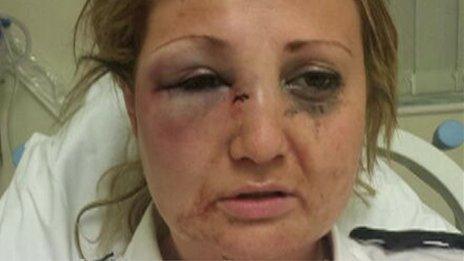
Nicola Williams was left with cuts and bruises on her face
The move to crack down on prison violence has coincided with the release of images showing an inmate attacking a member of staff at Feltham Young Offenders' Institute in London.
In CCTV footage shown exclusively to the BBC, a male prisoner is seen punching a female guard in the face.
Nicola Williams told the BBC she was eventually saved from her assailant by another prisoner, and commented: "There are never enough officers on duty to protect us."
The inmate received a 21-month prison sentence for the attack.
Prisons Minister Andrew Selous described the attack as "despicable".
He added: "The new protocol will make sure that there are prosecutions with extra time being served by prisoners at the end of their sentence. This will have a much greater deterrent effect."

Mark Leech, editor of Converse, a newspaper for prisoners in England and Wales, said: "Of course prison officers deserve justice. They do a dangerous job containing violent people, but this new policy is just rhetoric and likely to be a waste of time and money."
He said prosecuting prisoners who were already serving long sentences would have no "discernible benefits" to the public.
"The Parole Board are best placed to deal with such cases, not the courts," he added.
The government's bulletin on prison safety shows that overall, assaults in prisons and young offenders institutions rose 10% in the year to the end of June 2014, from 14,045 to 15,441.
There was a sharper increase in serious assaults, which went up 32% - from 1,377 to 1,817.
Within that category, serious assaults on staff have increased from 300 incidents to 395, or 32%.
Serious assaults are defined as those requiring medical treatment or resulting in certain types of injury, such as a burn or bruise.
The Ministry of Justice has proposed its changes as part of a wider violence-reduction strategy by the Prison Service, including efforts to tackle gang-related crime in London prisons.
The Serious Crime Bill, external, currently before Parliament, will make the possession of an offensive weapon in jail punishable by up to four years in prison.
- Published21 October 2014
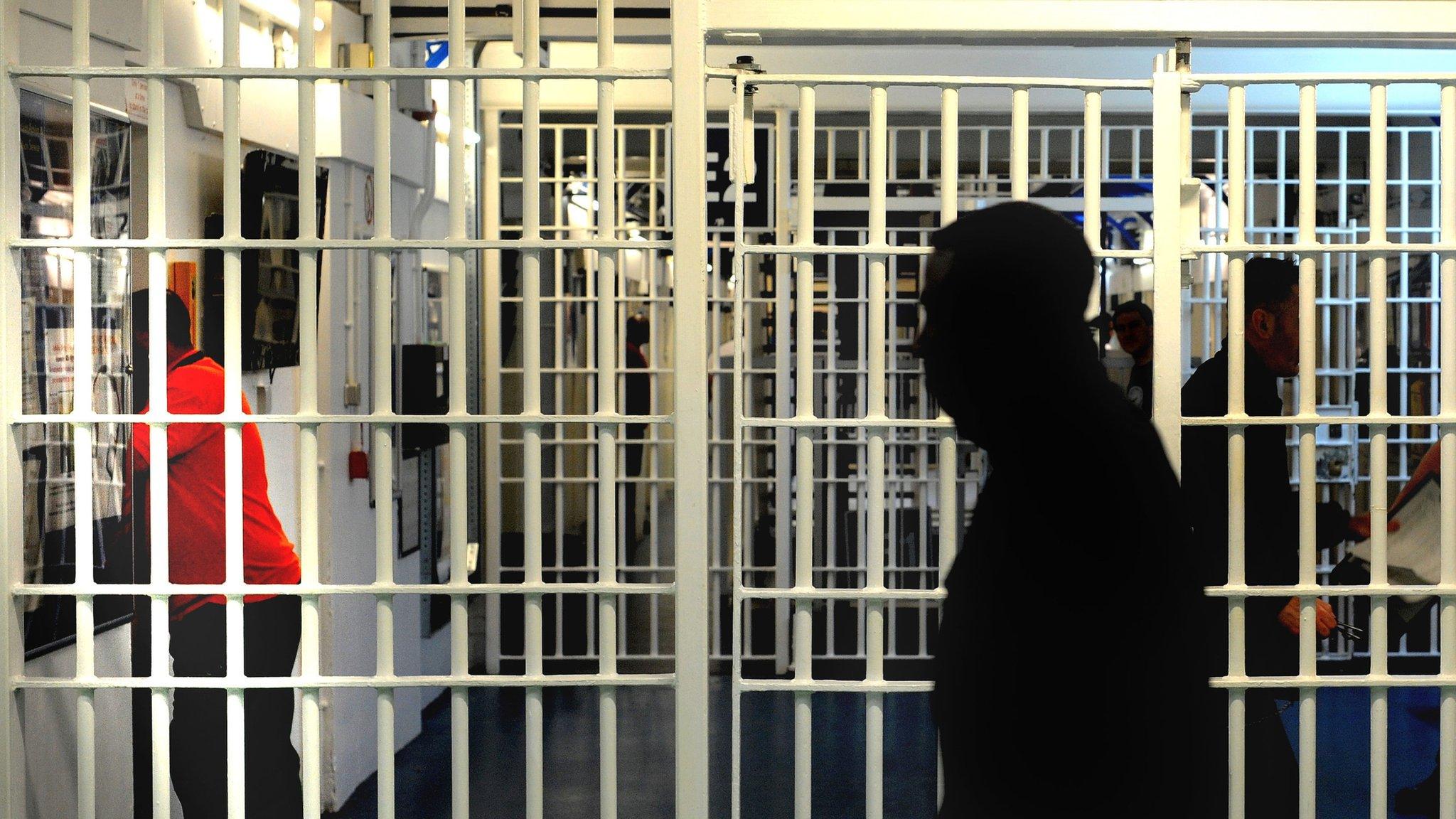
- Published20 October 2014
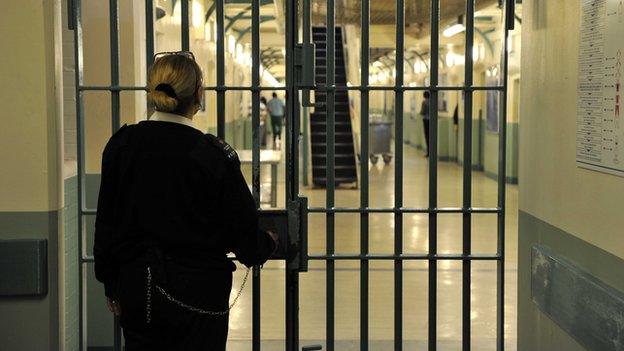
- Published19 August 2014
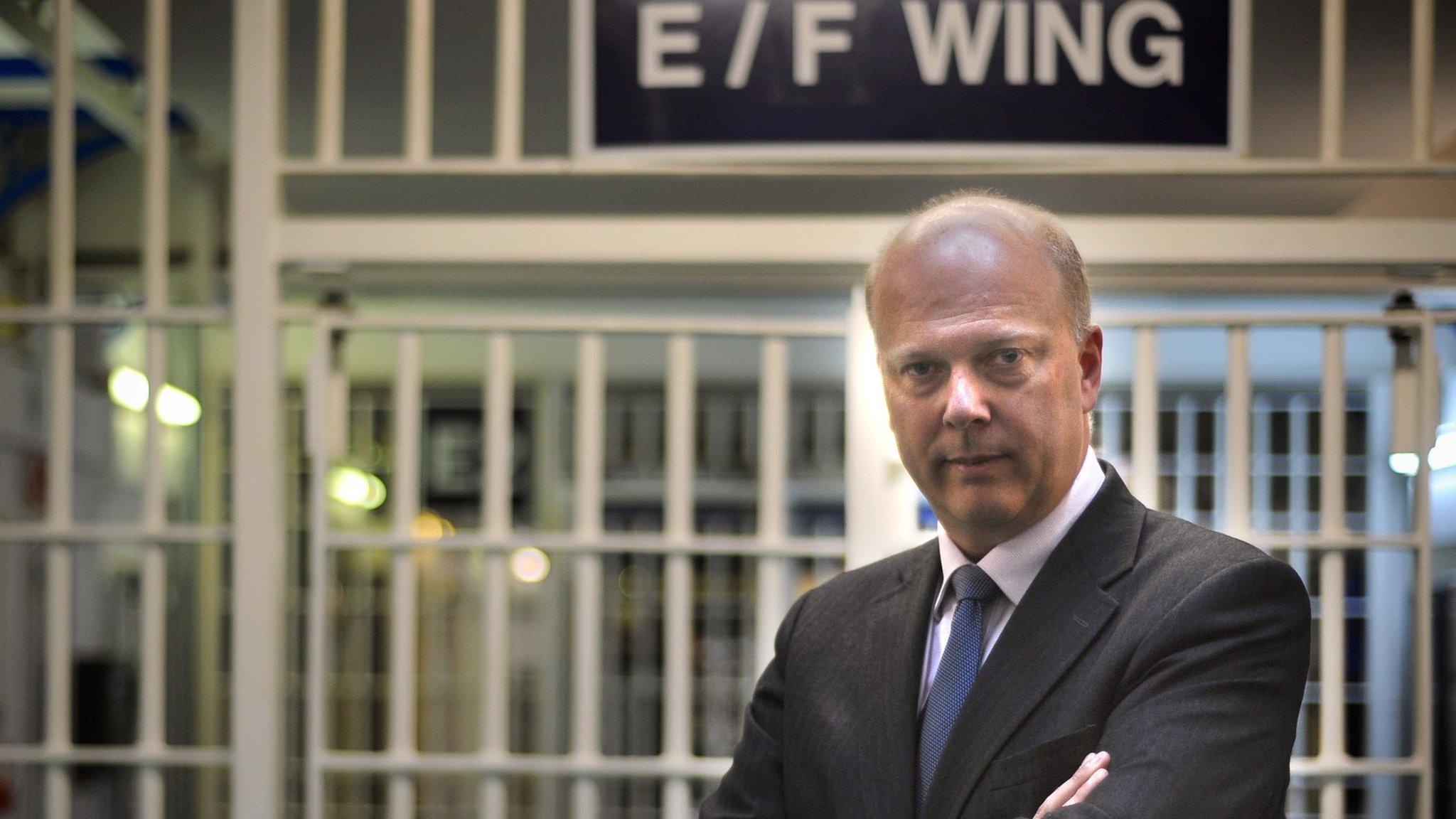
- Published28 October 2014
